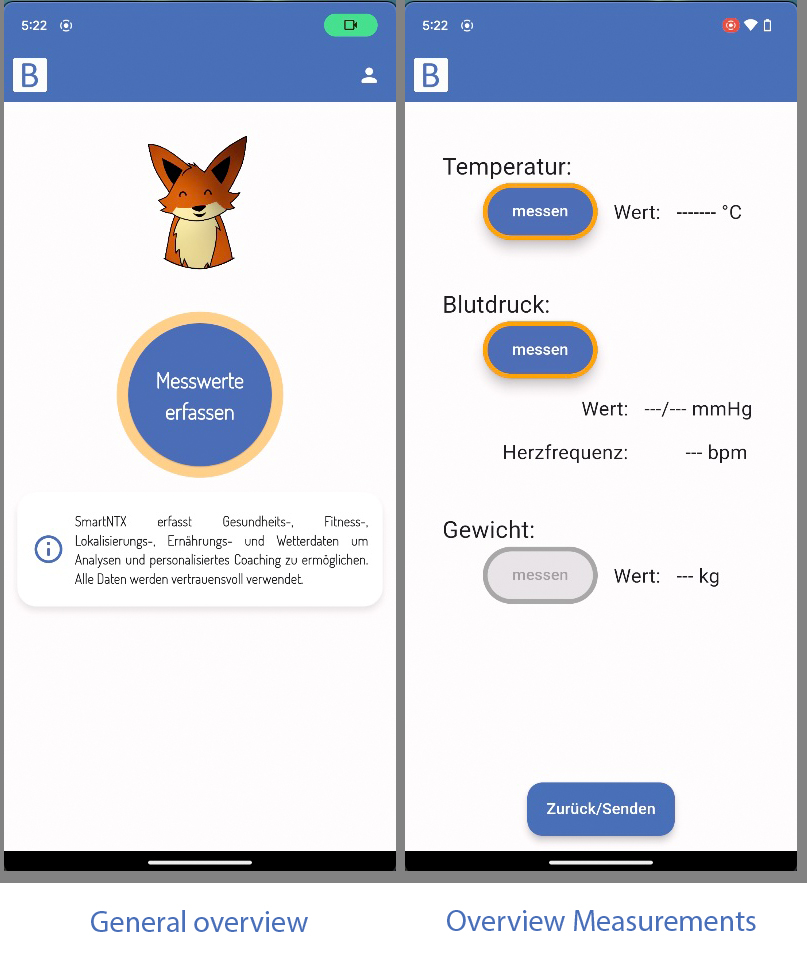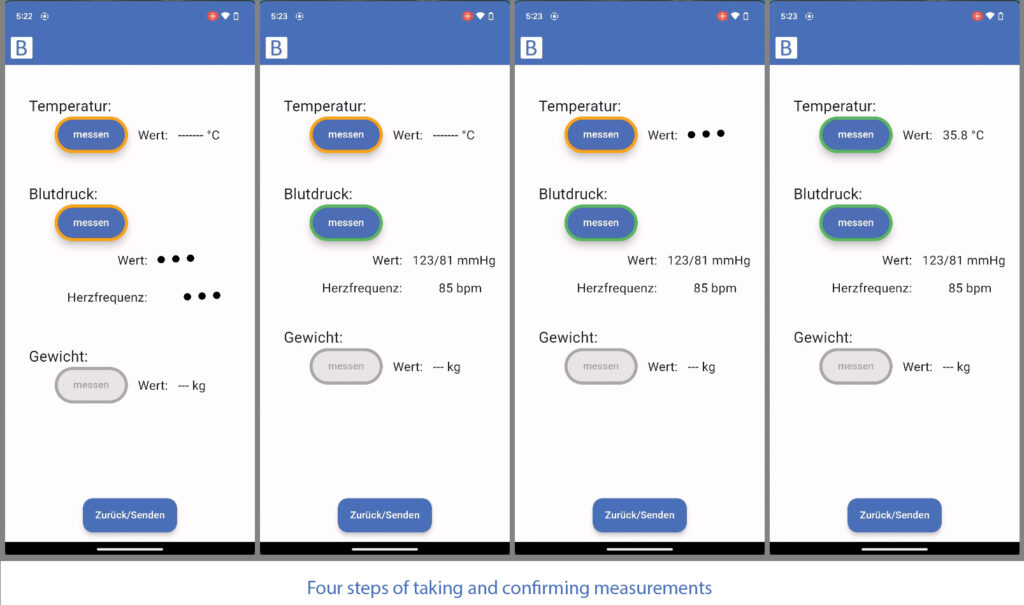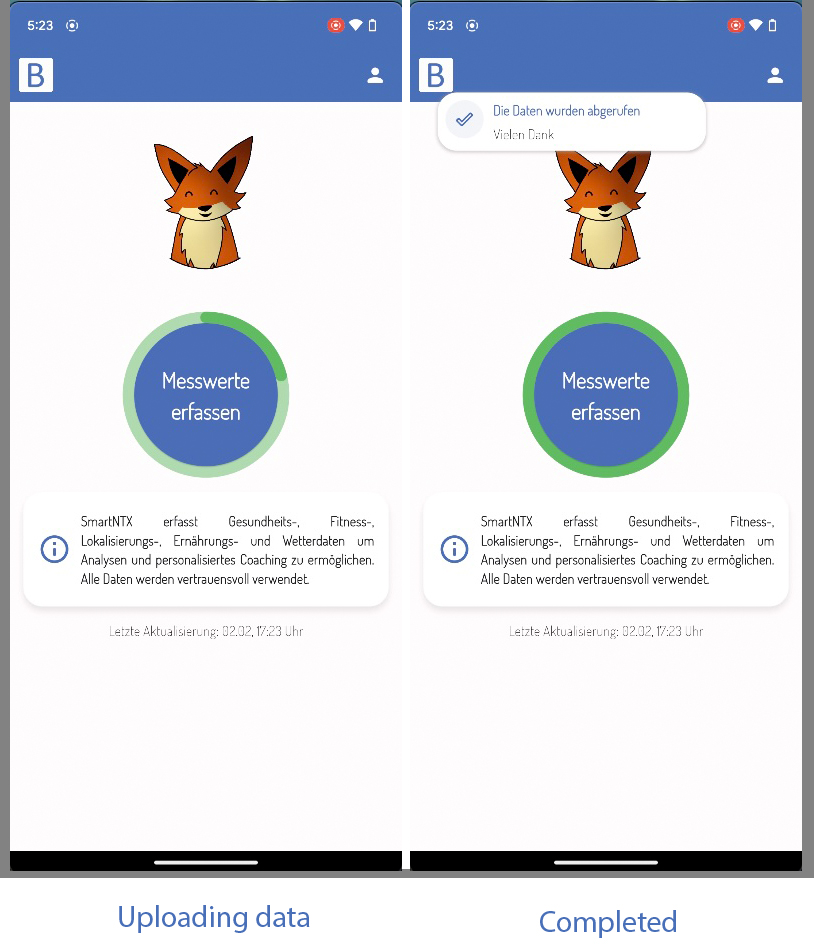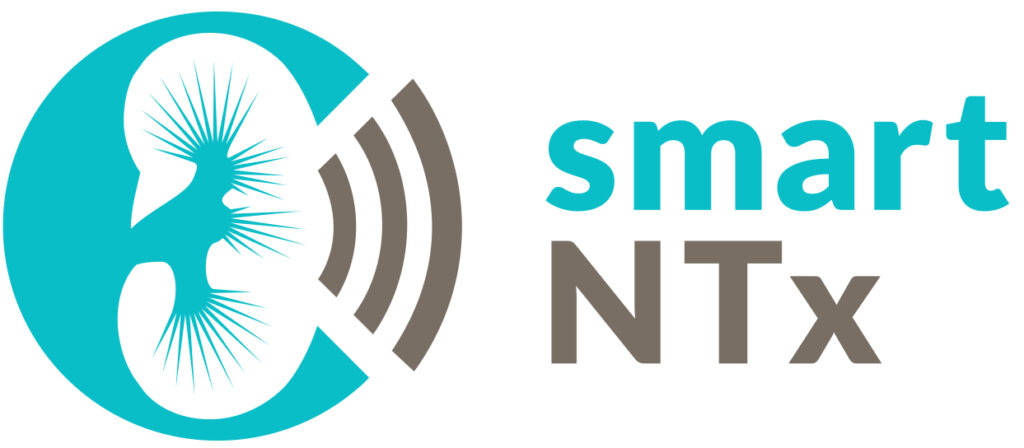
Download | App Privacy Policy | FAQ
smartNTx – for a longer life of transplanted kidneys
The new smartNTx form of care is aimed at transplant recipients in the first year of follow-up care and is offered in the kidney transplant centers of the University Hospital Erlangen, the University Hospital Essen and the Charité – Universitätsmedizin Berlin. The smartNTx project (link to the official smartNTx website) will be funded with 5.7 million euros from 2022 to 2025 by the Innovation Fund of the Federal Joint Committee (G-BA).
Motivation
According to the German Organ Transplant Foundation, almost 6,600 people in Germany were waiting for a donor kidney as of December 31, 2021. This contrasts with approximately 1,900 transplanted kidneys in 2021. This unequal calculation can only be solved if, on the one hand, more people decide to donate an organ and if, on the other hand, the lifespan of the transplanted kidneys is extended.
Goals of the clinical study smartNTx
The new form of care smartNTx complements the regular follow-up care after kidney transplantation (NTx) by a digital, telemedical, data- and AI-supported care of the patients, which should decisively improve the follow-up care for both treating parties and patients. Patients are supported in monitoring their essential vital signs through medical devices (scale, blood pressure device, and thermometer), apps and app-linked meters, and risks are identified and treated early through close follow-up by the telemedicine team. App support, e.g. for medication adherence, and the low-threshold option of contacting the telemedicine team will empower them in their self-management.
Goals of the nested research study smartNTx+
The aim of the prospective nested research study smartNTx+ is to extend the data collection of the ongoing smartNTx trial and to investigate new artificial intelligence (AI) methodologies for enhancing scientific insights, but not to directly influence decision-making processes for any patient in the study.
The investigation focuses on refining follow-up strategies of kidney transplant recipients by the telemedicine team, through advanced patient monitoring techniques, including vital signs, behaviour monitoring devices (smartwatches and smartphones), and AI-supported applications (AI-Hub), including chatbot and digital patient models. As part of our research, the AI-Hub will process pseudonymised patient data using prototypical tools for AI data analysis. In the future, based on the final results of the proposed study, the AI-Hub could expand the information available to the telemedicine team, thereby supporting them in making informed decisions and adapting their communication and advice to patient needs. The proposed smartNTx+ research initiative does not alter the clinical care provided to the patients in the smartNTx trial.
Bexome installation
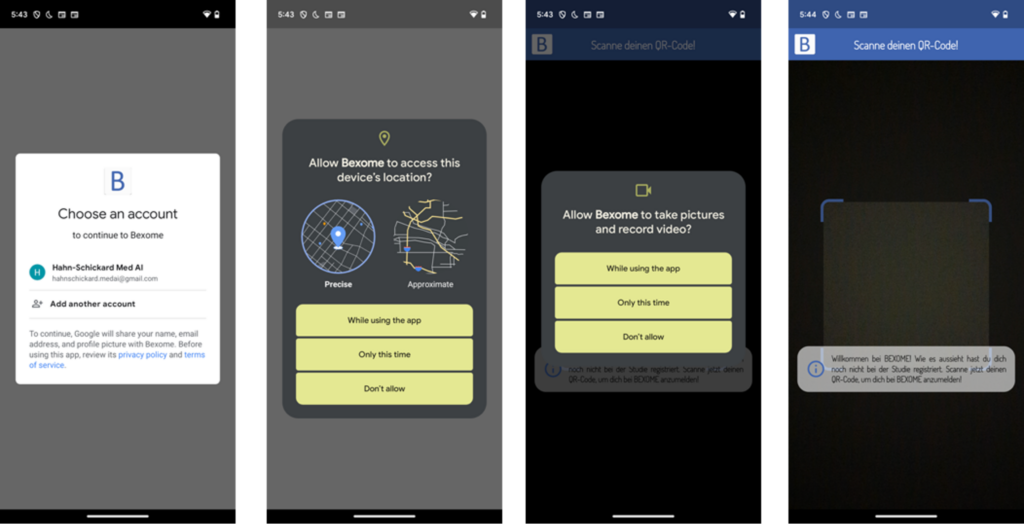
Bexome permission
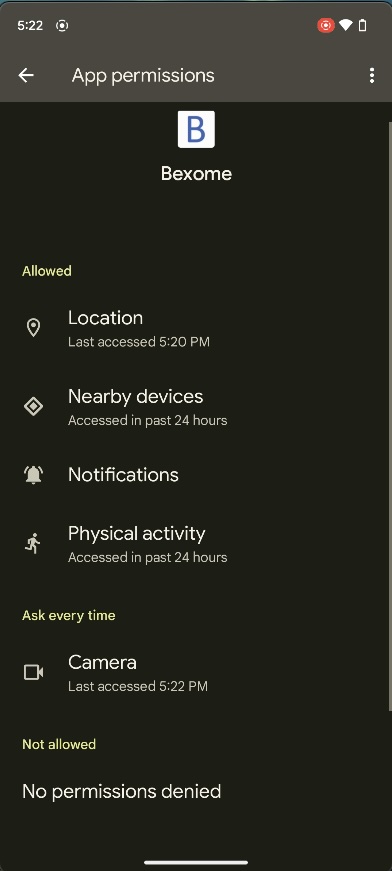
Bexome application
